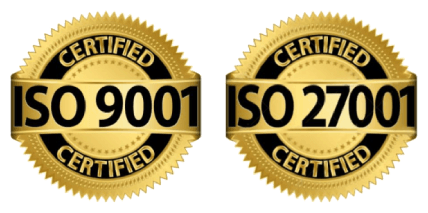
An approaching exam causes much anxiety in students, parents and, in fact, teachers as well. Pressure can sometimes feel insurmountable, which induces a fair bit of panic amongst those bracing for impact as they inch closer towards their first exam. All else is forgotten, sleep and food unwisely and rather reluctantly included.
Is there a way, or multiple ways, to overcome the pressure, eat and sleep, and still do well on your exams? Is there perhaps an effective means to revision that could mitigate unwanted anxiety and fear? Are there ways to improve retention, comprehension and concentration? The answer to all is yes. However, how they apply to individuals varies.
In his Ted Talk called A New Way to Crack Exams, Angad Nadkarni states,

Exams shouldn’t be about ticking the right options under stress. They should be about creating an intelligent workforce for our industries.
A New Way to Crack Exams, Angad Nadkarni, TEDxGateway
He then went on to hack the education system in India and create an app called, Examify. The app tells you what to study by taking question papers from all colleges, all tuitions, coaching classes and more, in India. As he says, “you name it, [they] have it!” Examify uses complex algorithms to track trends in exam papers to predict what you might be asked in future exams. The object is to help students prepare by studying only what they need to, thereby reducing pressure and making the revision process much more manageable.

Too Much Pressure…
The reason that I mentioned Examify is to point out that students, especially in India, are subjected to unnecessary stress resulting from a mountain of information they are expected to memorise flawlessly. Never mind that half of what they consume won’t be asked on the exam and will probably be forgotten quickly after. Thus, defeating the whole purpose of learning and ‘creating an intelligent workforce for our industries.’
Perhaps Examify might help some of you to separate the necessary from the unnecessary before overwhelming exam anxiety cripples your ability to make progress.
How to Improve Marks
I’m sure that most students care about the results of their exams, forming part of the reason why effective revision methods are sought after. So before we get into those, let’s look at how you can improve your marks. Again, I am going to mention a helpful Ted Talk on this subject by Douglas Barton. Essentially he states three things:
- IQ is NOT the determining factor in scoring high
- Don’t JUST Work Hard
- Work Hard Doing the Right Things
The talk touches upon three other critical points to achieving better results that I think are important to remember.
- Self Motivation– Work Consistently Throughout the Year
- Self Discipline – Cut Out Distractions When Working
- Resilience to Lower Marks/Failure– Pick Yourself Up and Dust Yourself Off

IQ is Not the Determining Factor
His research found that there are actually about 13 other factors, that were more effective in terms of predicting academic performance than just IQ. And one of these factors was the amount of practice exams one does.
Technique – Don’t JUST Work Hard
You can practice shooting eight hours a day, but if your technique is wrong, then all you become is very good at shooting the wrong way. Get the fundamentals down and the level of everything you do will rise.
Micheal Jordan
I mention this quote because the Ted Talk I talked about above made a really good point about the technique of studying. Students often find themselves distraught year after year despite thinking that they’ve worked harder and yet yielded results that are no better. This is because studying techniques do matter. Here are two important techniques that the video touches upon:
1) Practice Exams

His team found that the more practice exams one does, the more likely they are to score high on actual exams. They were able to statistically prove a positive correlation between high scores and number of practice exams taken. Why?
Because to actually do well you have to understand the material and not merely memorise it. If you are able to explain what you’re studying in your own words, then you understand it and are more than likely to retain that knowledge for a long time.
The research they conducted proved that taking more practice test helps you understand the material better. So rather than just memorise information, you are able to analyse it and formulate more robust arguments and answers.
2) Self- Discipline
This is the second technique that is very important. Douglas Barton cites research by two professors at the University of Pennsylvania that shows how self- discipline trumps IQ in a range of areas. Their research showed that self- discipline was twice as accurate in predicting academic performance than just IQ.
Self- discipline means a lot of things. It means making a timetable and sticking to it. It means cutting out distractions and sticking to it. It means studying consistently and sticking to it. But through all of this, you must remember to also make time to relax and do the things you love. Make a timetable and put in when you’re going to socialise, your hobbies, outings or whatever else it is that you love doing. Then you can go ahead and add studying. Do so will help you maintain a healthy balance and not experience burnout. Hey, you never know, you might even end up liking studying.
Book Tip: How to Pass Exams by Dominique O’Brien
Dominique O’Brien is a memory genius who has written multiple rather useful books. In How to Pass Exams (the link above takes you to the Pdf), if you skip to the last chapter, you will find a section titled ‘Planning Your Revision’. You can check out that section if you want some more help.
Revision Tips
There are a few things you can do to yield better results from your revision sessions and they are fairly straightforward. But before you begin any task, practice some diaphragmatic breathing. This is a deep breathing technique, focusing on where the air comes from in your belly rather than chest. Diaphragmatic breathing interrupts the body’s fight or flight mode, increases oxygen, and decreases the amount of stress hormones that are released.
So, calm your brain right when you sit down to study- it can really help you concentrate.
1) Eat Breakfast/Lunch/Dinner
Eat before you begin revising. Statistics show that most students will skip breakfast. I know I certainly did for a long time. However, breakfast gives you the boost you need to focus and retain information throughout the day. It is best not to underestimate the power of food. Similarly, do not skip meals. If you don’t have time to eat a full meal, carry enough healthy snacks with you to make up for the loss of energy. Of course, still try to fit in as many proper meals as time permits you.
2) Start Revision Early

The earlier you start, the better it will be for you. Expand on your notes after class everyday. One thing I’ve noticed that really helps is regularity and consistency. Okay, let’s unpack this a bit. The most fitting analogy I can think of is cleaning your room.
The longer you wait, the messier and dirtier your room gets. If you clean a little every day, you avoid overwhelming yourself by having to do it all once. The same applies to the study. A little bit of reviewing every day and you’ll save yourself from the dreaded pre-exam anxiety. Plus, you can make this fun. The earlier you start the better it is for future you. Always keep future you in mind. Think about what they would say to present to you.
Review your notes and expand on them the first free moment you get after you leave class. Ideally, this should be done right after your class. Take a few moments to flesh out what you remember from your lecture, giving your notes detail and depth.
If you wait too long, you may forget some of your own notes. Of course, if you’re rushing to work or another class, you can always expand at a later time. I must stress, however, that it is exceedingly helpful to follow through with this method.
3) The Pomodoro Technique

The Pomodoro Technique was developed in the 1990’s by a man called Francesco Cirillo to boost productivity and enhance focus.
The theory behind the Pomodoro Technique is that any large task(s), or any serious of tasks, can be broken down into short timed intervals called, pomodoros. Each is separated by a short break, considering the fact that our brain has limited attention spans. In order to use this technique, all you really need a timer — except, of course, if you have the extension.
Tying into this, you’ll find the Ebbinghaus forgetting curve is applicable once again. Ebbinghaus Forgetting Curve essentially describes how the brain loses its ability to retain information over time. The curve was hypothesized by Hermann Ebbinghaus in 1885, theorising that human beings lose learned knowledge unless one consciously reviews the material at hand.
Frequent Revision and Pomodoro
Now consider the two points above, revising frequently and using the Pomodoro technique. Both of these are highly useful tools to use in combination to, in a way, curb the Ebbinghaus Forgetting Curve.
Try to use these methods and mould them to fit how you learn best. With the Pomodoro Technique, you are free to adjust how long the time segments that you work for are. Which means, if you require longer sessions that’s fine. The whole point is to cut distractions during that time, and take frequent breaks.
4) Spacial Revision
The thing about starting revision early and staying consistent is that it improves retention. Spreading out your revision sessions on a particular is more effective than spending the same amount of time in one go — for example, doing 10 hours in one day.
This is known as spatial revision and it helps because it allows time in between revision sessions to forget and re-learn the material. This in turn solidifies what you learn and also shows you what you need to focus on more.
5) Say It in Your Own Words (Repetition and Understanding)

I have mentioned this in other posts as well but it is applicable here, I think. Here is what I said. How do you know that you know the subject matter? Well if you can look at the information, move on to the next point, then come back to the previous point, look up into the sky and explain it in your own words, you know it. If you can’t, you don’t fully understand it.
Notice how this is different from memorization. Understanding is more important because sometimes exam questions don’t follow a straightforward structure. These questions demand application. So, you must be able to apply your knowledge.
In order to fully apply yourself, you need to have a good understanding of the matter and concepts at hand. If you study with the intention to understand, you will be able to answer any question on a given topic.
When learning names and technical terms for different parts of the body, like the name of a bone, you are memorizsing a fact. But you will also need to know what this one does. What is its function or purpose? Now you’re getting into conceptual learning.
If you simply memorise everything and don’t understand the actual function of the bone, you’ve just wasted a lot of learning. Once you actually grasp and fully comprehend a concept, that information will stay with you for a lifetime.Remember, can you put it in your own words?
6) Teach Someone
I have talked about this one in other posts also. But again, I think it is relevant so here it is. Find someone, a friend preferably, who doesn’t understand the topic and then teach it to them. In doing so, you are literally forcing your brain to organise and condense all necessary and important information. This exercise can you save you hours of studying. If you absolutely cannot find anyone to teach, then teach yourself out loud.
7) Test Yourself/Do Practice Tests
We already saw that doing practice tests has proven to be an effective means to performing better academically. I remember taking over 20 practice math exams for 12th standard finals. I was not good at Math but I scored nearly full marks on my final.
Come to think of it, I did well on most of my 12th standard exams because I took a bunch of practice tests. My dad told me, “you’ve allocated 5 hours to studying every day, so do it. The study, take one practise test and you’re done. Then come down for dinner.” So I did, of course, I also took breaks. I lost a lot of that discipline in college but looking back it was one of the most effective ways that I’ve studied — practice tests.
Need some pocket money to celebrate the end of exams? Simply download StuCred now!
Tags- How to Revise Effectively, how to revise effectively in a short time, how to revise for exams in a week, how to study effectively in one week, how to study for exams






